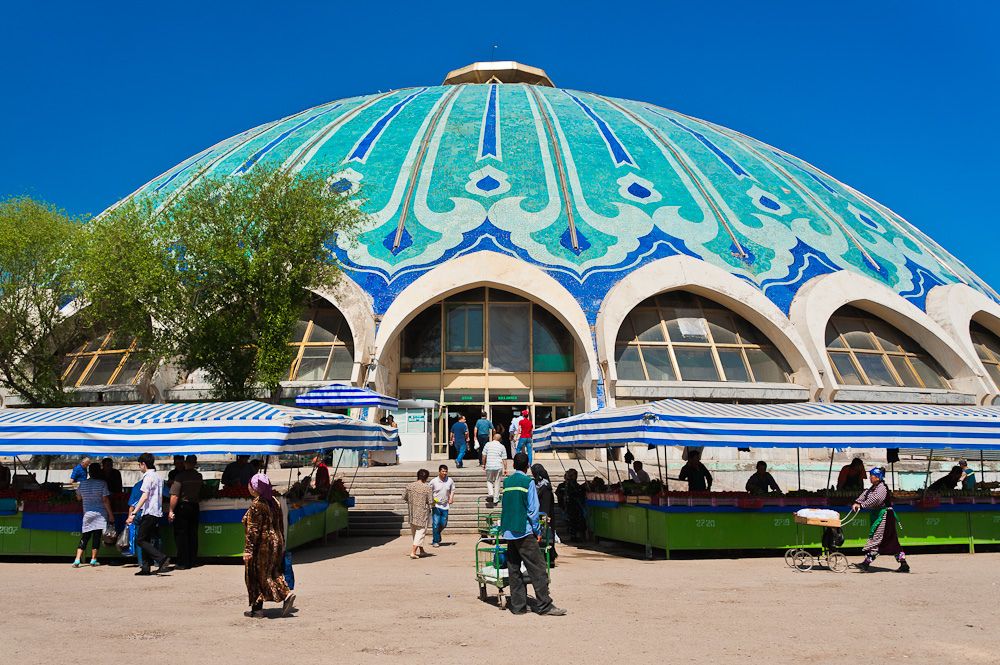

Located in the heart of the old town section of Tashkent, the Chorsu Bazaar has been a vibrant center of trade and commerce for over centuries. This bazaar is one of the oldest markets in Uzbekistan and has played a crucial role in the Silk Road trade. Historically, it acted as a major crossroads for traders from all over the world, including those from Asia, the Middle East, and Europe.
The name "Chorsu" translates to "four streams" or "four ways," emphasizing its importance as a focal point in Tashkent's trading network. Over time, Chorsu Bazaar has gone through reconstructions, especially after significant events such as the earthquake of 1966, but it has continually retained its traditional charm and function as a busy market.
The transition of Chorsu Bazaar into a tourist attraction has been a natural progression due to its rich cultural and historical significance. As a place where visitors can immerse themselves in local traditions, the bazaar offers a unique window into Uzbek culture. Tourists can explore a myriad of stalls selling everything from spices and dried fruits to handcrafted souvenirs and intricate textiles.
The architecture of Chorsu Bazaar itself, with its central dome and surrounding trading domes, is a point of interest. The sight of local vendors, traditional culinary treats, and the hustle and bustle give visitors an authentic experience, making it a must-see destination in Tashkent.
In recent years, there has been a growing trend in gastronomic tourism, with visitors being particularly drawn to local Uzbek cuisine that can be tasted within the bazaar. This includes dishes like plov (a traditional rice dish), samsa, and an array of kebabs and fresh bread. Food tours are becoming increasingly popular, allowing tourists to sample an array of local flavors.
Another growing trend is the appeal of authentic experiences. Tourists are seeking more than just visual experiences; they want to engage in the local lifestyle. As a result, interactive activities like cooking classes or craft workshops provided by local artisans within the bazaar have started to become part of the itinerary of many visitors who wish to take a piece of Uzbek culture back home with them.
As the global tourism industry moves towards sustainable practices, there is a conscious effort in Chorsu Bazaar to preserve the traditional ways of commerce while accommodating the modern tourist influx. Keeping the bazaar a viable space for both local commerce and tourism is crucial, and efforts are continually made to balance preservation with development. This includes supporting local vendors and educating tourists on the importance of responsible tourism practices.
From a rich history as a Silk Road marketplace to its modern-day status as a hub for cultural interactions and tourism, Chorsu Bazaar continues to offer a timeless experience that reflects the spirit of Tashkent and Uzbekistan as a whole.